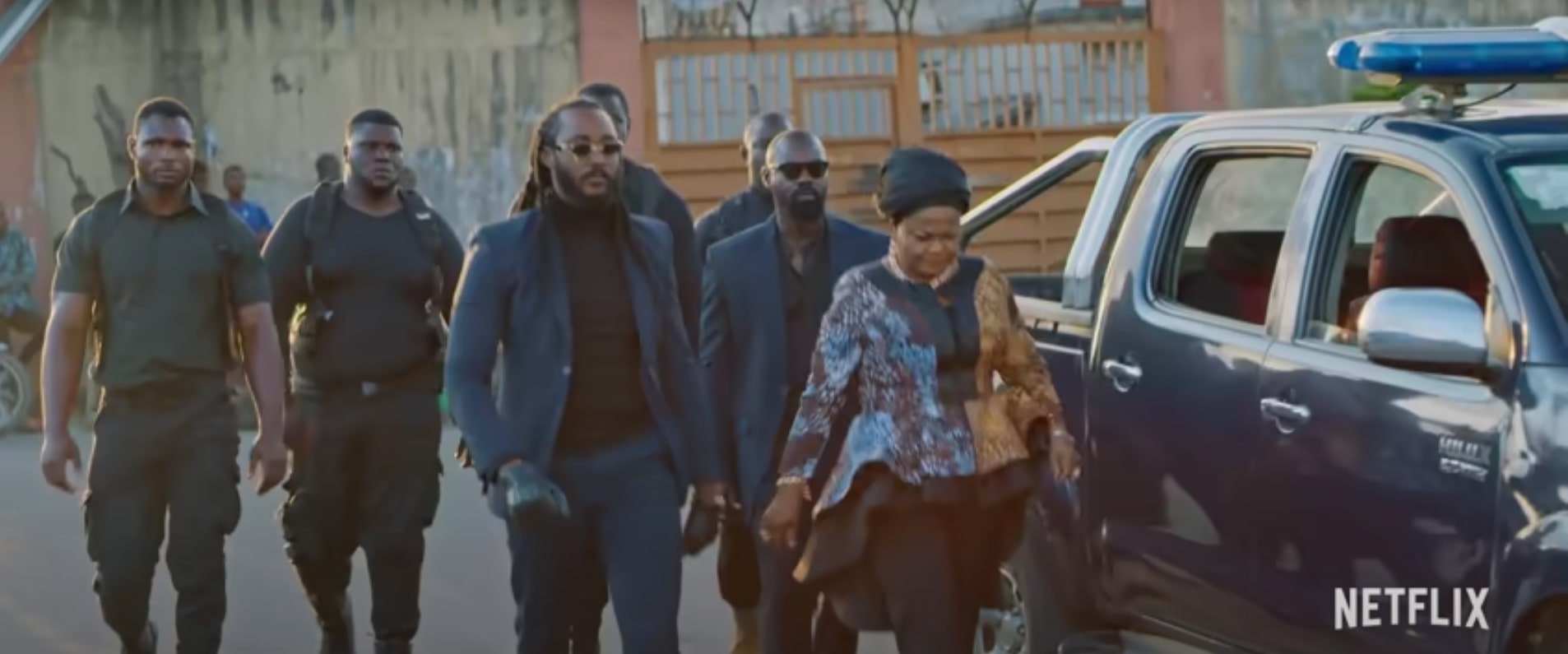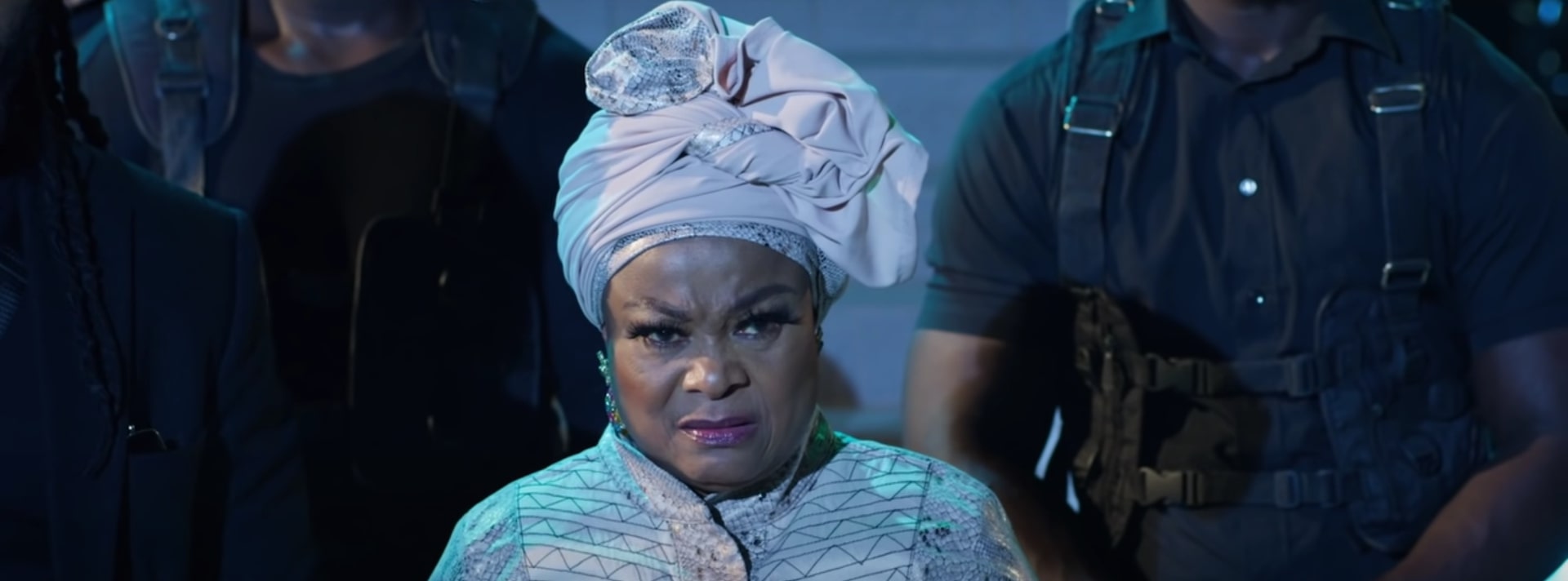‘King of Boys: The Return of the King’ is a Nigerian political crime drama series created by Kemi Adetiba. The Netflix web series is the direct sequel of the 2018 film ‘King of Boys,’ which Adetiba also wrote, directed, and co-produced. At the end of the film, Eniola Salami (Sola Sobowale) is forced to leave Nigeria amidst dire circumstances. Now, after spending 5 years in exile, the powerful and morally dubious businesswoman returns to the City of Lagos to reclaim everything she was forced to leave behind.
‘King of Boys: The Return of the King’ is reportedly Netflix’s first original Nigerian web series. Like the original movie, it offers a roller-coaster ride to the audience through the economic, political, cultural, social, and criminal aspects of Nigerian society. If that has made you wonder whether the show is based on real-life events, this is what we need to know.
Is King of Boys: The Return of the King Based on a True Story?
No, ‘King of Boys: The Return of the King’ is not based on a true story. Like the original film, it’s based on a fictional script that Adetiba penned. In an interview, the Nigerian filmmaker mentioned that she developed the script with Sobowale in mind. “Sola Sobowale existed before the script existed… a friend of mine mentioned, ‘won’t it be crazy if Sola Sobowale played as some do’ and I laughed ‘like that is ridiculous and I was like wait’ and then I started having ideas and started putting things together and that is how it happened. King of Boys was written around her,” Adetiba stated.
According to her, she wanted to explore “an authentic Nigerian story with no limitations.” As the film was the first project made under Adetiba’s own production company, Kemi Adetiba Visuals, she had plenty of liberty to pursue the vision she had for the project.
With the sequel series, the obvious aim was to elevate things in every aspect. Netflix’s involvement most likely made matters easier for Adetiba and her crew. Initially, Adetiba had no desire to bring back ‘King of Boys,’ as she was perfectly content with how the original film ended. She was aware that the movie had garnered a huge following and probably knew that if she were to develop a sequel project, it would be successful internationally. But then again, her motivation was never the monetary profits.

When Adetiba finally decided to make the sequel, she wanted to do justice to both the story and the characters that inhabit it. Because of this, she chose to make it as a 7-part limited series and not as a film.
“I think for me, one of the big things for me I don’t want to hoodwink people,” she said in a different interview. “I don’t want people to go ‘KOB KOB’, and there’s nothing there, so I’m not that kind of filmmaker. I want the rush to be able to mean something.” She subsequently added, “… when I decided to do a follow-up to it, it was important to have, because it’s been such a long time and then the first one is such a big project, I think it was very important to have the time to be able to tell you what these guys have been up in five years and what they are going to be up to again. I needed time to make the characters as complex as possible.”
With the two ‘King of Boys’ projects, Adetiba chooses to depict the largely unexplored trope of a Nigerian woman in a position of power. In ‘King of Boys: The Return of the King,’ Salami decides to contest in the Lagos State’s gubernatorial election after returning to the country. What follows is a vicious struggle between her and her opponents. While Salami is quite ruthless, she never loses the audience’s sympathy. She is a fantastic protagonist, and Adetiba’s inherent feminism likely inspired her creation. Clearly, ‘King of Boys: The Return of the King’ is not based on a true story, but it’s understandable if someone thinks it is.
Read More: Where Was King of Boys: The Return of the King Filmed?


You must be logged in to post a comment.